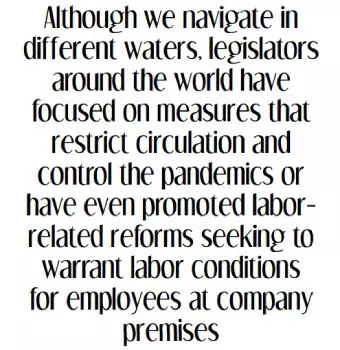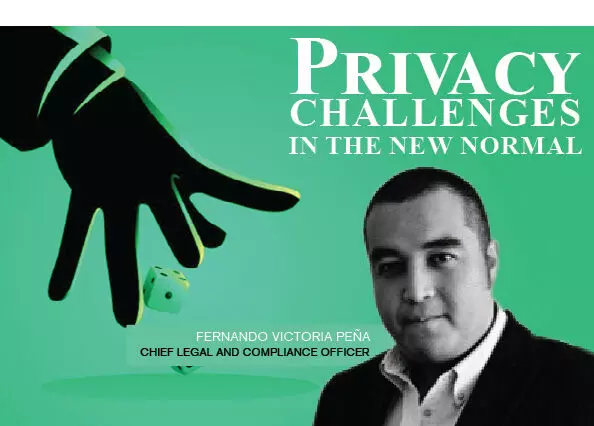- Home
- News
- Articles+
- Aerospace
- Artificial Intelligence
- Agriculture
- Alternate Dispute Resolution
- Arbitration & Mediation
- Banking and Finance
- Bankruptcy
- Book Review
- Bribery & Corruption
- Commercial Litigation
- Competition Law
- Conference Reports
- Consumer Products
- Contract
- Corporate Governance
- Corporate Law
- Covid-19
- Cryptocurrency
- Cybersecurity
- Data Protection
- Defence
- Digital Economy
- E-commerce
- Employment Law
- Energy and Natural Resources
- Entertainment and Sports Law
- Environmental Law
- Environmental, Social, and Governance
- Foreign Direct Investment
- Food and Beverage
- Gaming
- Health Care
- IBC Diaries
- In Focus
- Inclusion & Diversity
- Insurance Law
- Intellectual Property
- International Law
- IP & Tech Era
- Know the Law
- Labour Laws
- Law & Policy and Regulation
- Litigation
- Litigation Funding
- Manufacturing
- Mergers & Acquisitions
- NFTs
- Privacy
- Private Equity
- Project Finance
- Real Estate
- Risk and Compliance
- Student Corner
- Take On Board
- Tax
- Technology Media and Telecom
- Tributes
- Viewpoint
- Zoom In
- Law Firms
- In-House
- Rankings
- E-Magazine
- Legal Era TV
- Events
- Middle East
- Africa
- News
- Articles
- Aerospace
- Artificial Intelligence
- Agriculture
- Alternate Dispute Resolution
- Arbitration & Mediation
- Banking and Finance
- Bankruptcy
- Book Review
- Bribery & Corruption
- Commercial Litigation
- Competition Law
- Conference Reports
- Consumer Products
- Contract
- Corporate Governance
- Corporate Law
- Covid-19
- Cryptocurrency
- Cybersecurity
- Data Protection
- Defence
- Digital Economy
- E-commerce
- Employment Law
- Energy and Natural Resources
- Entertainment and Sports Law
- Environmental Law
- Environmental, Social, and Governance
- Foreign Direct Investment
- Food and Beverage
- Gaming
- Health Care
- IBC Diaries
- In Focus
- Inclusion & Diversity
- Insurance Law
- Intellectual Property
- International Law
- IP & Tech Era
- Know the Law
- Labour Laws
- Law & Policy and Regulation
- Litigation
- Litigation Funding
- Manufacturing
- Mergers & Acquisitions
- NFTs
- Privacy
- Private Equity
- Project Finance
- Real Estate
- Risk and Compliance
- Student Corner
- Take On Board
- Tax
- Technology Media and Telecom
- Tributes
- Viewpoint
- Zoom In
- Law Firms
- In-House
- Rankings
- E-Magazine
- Legal Era TV
- Events
- Middle East
- Africa
Privacy Challenges in The New Normal

Privacy Challenges in The New Normal To the extent that weeks went by, corporations began to realize that efforts were not to be solely geared to warrant their operational safety but also to the respect of the right to privacy of their employees The world is nowadays facing extraordinary and unpredictable conditions in which uncertainty regarding the future is something that takes away...
To Read the Full Story, Subscribe to Legal Era News
Access Exclusive Legal Era Stories, Editorial Insights, and Expert Opinion.
Already a subscriber? Sign in Now
Privacy Challenges in The New Normal
To the extent that weeks went by, corporations began to realize that efforts were not to be solely geared to warrant their operational safety but also to the respect of the right to privacy of their employees

The world is nowadays facing extraordinary and unpredictable conditions in which uncertainty regarding the future is something that takes away most people's sleep. In the course of this year, the economy stood up against one of its greatest trials, where a portion of the discussion centered on the balance between life and economics, a discussion that, in my opinion, took place in a scientific and economic environment, adopting educated decisions and in which most of the times respect for health and life itself prevailed upon any other economic contest for most countries. Now well, for corporations (and even including the government), that by reason of their respective social purposes or by not having an impact or restrictions, could continue to operate from a home-working environment or enjoy some degree of flexibility at their offices, safe environments were created for employees, the business itself and their customers, despite the fact of cohabitating in a low regulated, nervous environment that evidenced more questions than answers.
From the standpoint of privacy and to the extent that corporations were permitted to continue in operation, most of the extraordinary and emergency regulations imposed obligations regarding monitoring of the health of employees, aiming to prevent any upsurge of contagion at their premises. In this order of ideas, additional data to that already available at most companies in the normal course of business, there was now an element of sensitive data that, although being collected by mandate of the new laws, its collection, disposition and transfer implied establishment of new control measures to prevent any incident of privacy in the context of this new reality. There is no doubt that this sort of information must be available so that authorities and companies themselves may adopt any measures necessary to detain spreading of the pandemic or reduce its scope, despite that circulation and storage of an important volume of sensitive data are not in anybody's plan but, instead, make part of the new measures of control in the new normal.

On the other hand, and, as most companies transferred their workforce to the homes of their employees, implementing working environments within the family settings, the obligations of privacy and confidentiality have not changed nor have they been eliminated but, instead, have transformed within a non-controlled situation and carry an, in principle, unknown larger risk level. To the extent that weeks went by, corporations began to realize that efforts were not to be solely geared to warrant their operational safety but also to the respect of the right to privacy of their employees. Although some companies, due to the sensitive contents of data being processed or even as a result of the nature of their very customers, became aware of the need to set monitoring circumstances a lot stronger than in the homes of their employees including, in some cases, the use of cameras, the rights of employees are not to be lost track of since the latter carry, on their backs, a corporate stress, even to the same degree of managers, in some cases, and are subject to the same stress and uncertainty of the times.
In such circumstances, in which privacy and acquiescence policies are set at trial, in which the new normal is almost a vertical for the companies that leveraged its transformation and obliged to implement remote working measures in order not to disappear, it is now necessary to care, more than ever before, for the relationship with employees, their state of mind and the socialization and need for measures of surveillance of security within their intimate environment. In some jurisdictions it may even be an issue of constitutional nature to the extent that rights to privacy and intimacy may be adversely affected and where we return to the beginning in-depth discussions regarding life versus economics, now exchanging the roles of economics and privacy.
Regarding this last issue, discussion, in my opinion, is much simpler; the two are to cohabitate in a different reality, with minimum rules of the game for corporate development and the easiness of their own citizens and corporations. Although we navigate in different waters, legislators around the world have focused on measures that restrict circulation and control the pandemics or have even promoted labor-related reforms seeking to warrant labor conditions for employees at company premises. We must understand and protect, warrant and develop; it is not just a matter of survival within a new normality; it is a concern for survival with guarantees for all actors in the new reality and, from that stage, companies are to work along the authorities on data protection in a program for privacy in the design of this new times.
Many are the scars that the pandemics has left but we, as a society, must continue to remain united for stabilizing the conditions and work jointly with government to model the new reality. Issues of privacy are not to be left aside or diminished in importance by priorization of other aspects; they are to be treated in a parallel manner due to their being inalienable rights of individuals whose protection curve has become larger in most legislations but, whether for a legitimate interest or legal mandate, the rights of individuals are not to be vulnerated.
Disclaimer – The views expressed in this article are the personal views of the author and is purely informative in nature.


